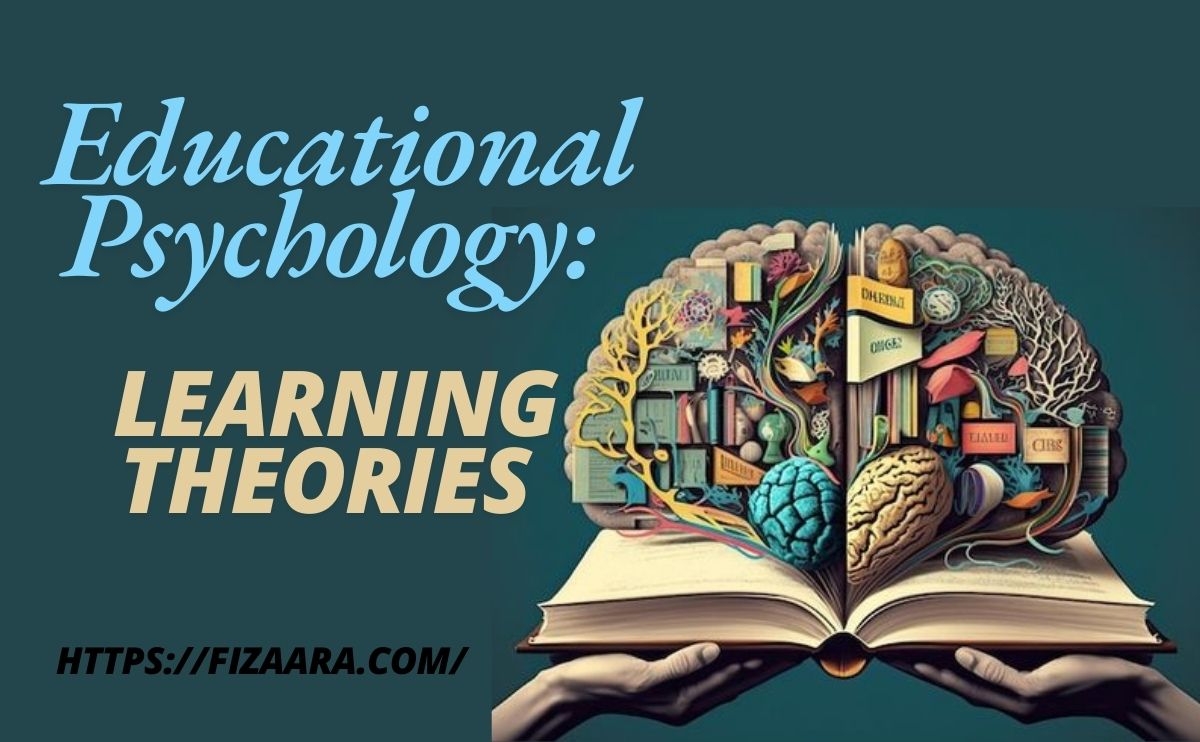Introduction
Educational psychology is defined as the scientific study of human learning that is most focused on the acquisition of knowledge. It analyzes how knowledge is acquired by the human mind, how the brain feels about the material being taught, and how people interact while learning; it is essential to teaching and growth in education.
The overarching goal of educational psychology is to effectively fill the gap that lies between psychology and education to improve the act of learning and to guide educators as they develop valuable strategies as well as focus on fostering success for learners.
Here, theories and applications of educational psychology shall be highlighted together with the general principles and the whole idea behind the subject as we see how this branch of study impacts the existing education today.
Understanding Educational Psychology
Definition of Educational Psychology
Education psychology is therefore defined as a scientific field that makes use of psychological data and principles to understand students’ learning processes in school.
While general psychology studies most behavior patterns of people, educational psychology is more focused on studying the learning processes and factors that help or hinder the learning process.
Memory, motivation, and development stages are part of the knowledge base that educational psychologists use to assist an educator further and enable students to accomplish objectives.
Two of the field’s aims are to identify factors that can increase the effectiveness and joy of learning.
Educational psychology does consider the individual learning needs of children, as well as educational environments, assessment and learning resources, and individual learning strategies.
If you want to see information about Ohm Law Wheel Click Here…
Function of Educational Psychology in Learning and Development
In this branch of psychology, knowledge, and patterns of learning are presented with apprehension to students developmental phases as well as ability, emotional, and interpersonal structures making it doable for an instructor to modify teaching techniques to students’ needs.
Cognitive psychologists investigate areas of focus, learning duration and capacity, information recall, and various forms of interactions through which they determine the roles they play in learning.
Moreover, educational psychology is vital for recognizing individual differences, such as learning disabilities, giftedness, or emotional struggles. By analyzing these variations, psychologists can help teachers support each student’s unique needs, fostering an inclusive educational environment where all students have the chance to thrive.
Educational Psychology Key Theories
Behaviorism:

Developed from the work of B.F. Skinner and Ivan Pavlov, behaviorism especially accords with the principles of learning. They are confident that behavior can be changed through rewards and punishment and this particular theory is mostly used in applying teaching strategies and conditioning aspects of learning.
Cognitivism:
Cognitivism mainly moving ahead because Jean Piaget focuses on the process by which people come to know information, how they process and even store it.
This theory does not consider interpersonal and intrapersonal communication but follows the attitude and how it affects learning insisting on the mental operation. According to Piaget’s model of cognitive development, there seems to be a particular procedure or sequence that impacts the child’s perception of outreach concepts.
Constructivism:

Jerome Bruner and especially Lev Vygotsky contributed to the view that people build up in their minds what they would like to grasp. Namely, in constructivist approaches, students are offered to practice the received material and work on such problems that would contribute to an improved understanding of the matter.
Both theories are used in education and many strategies originate from these basics and give teachers a resource pool to use for different learning experiences.
Cognitive Development & Educational Psychology
Cognitive development is the very core of educational psychology as it enables one to comprehend how a child’s thinking abilities change.
The stages of cognitive development suggested by Piaget include: sensorimotor, preoperational, concrete operational, and formal operational stages describe how children acquire information and how they organize it.
These stages are therefore used by educational psychologists to identify correct teaching methods.
For example, to teach young children in the preoperational stage use graphics and storytelling while late children in the formal operational stage can be taught using abstract ideas and logical reasoning.
Reference to these developmental stages thus assists in understanding children better because educational content can be developed to suit the various stages of development.
Approaches to Motivational and Engagement in Educational Psychology
Types of Motivation
- Intrinsic Motivation: It originates from inside him and therefore the student will act from within and learn or strive to obtain an achievement for that satisfaction.
- Extrinsic Motivation: Therefore, extrinsic motivation can be held by external factors, for example, encouragement by parents, or by carrying attractive rebukes or good grades from school.
Enhancing Motivation
School psychologists working to enhance motivation can look at means for enhancing extrinsic and intrinsic motivation.
Some of the ways, such as setting goals, responding with detailed feedback, and designing supportive and demanding assignments positively influence students’ interest. Self-organization is the student’s sense of ownership because when they feel they own something, they will struggle to see it succeed.
Learning Styles and Educational Psychology.

Educational psychology takes cognizance of the fact that every child’s learning comes easily if he or she is in a position that he or she loves. Commonly referenced learning styles include:
Visual Learners:
These students take time to understand what is being taught to them probably because they respond well to illustrations, which may comprise charts, diagrams, or even short videos.
Auditory Learners:
They understand and memorize better when they hear, so they are well-positioned for lectures and discussions.
Kinesthetic Learners:
the students who can learn by involvement in a physically provoking manner are called kinesthetic learners.
Learning them makes the teachers plan for the class in such a way that all the students have a chance to deliver their best since those styles are taken into consideration.
Emotional and Social Development in Educational Psychology
Role of Emotional Intelligence
Personally and interpersonal skills are right for learning and also for cognition. In other words, the ability to understand emotions for oneself and others as well as the skills of self and other regulation or impulse control called emotional intelligence helps the learners to regulate their emotions and behaviors toward others.
From a social perspective, students work in teams, learn conflict-solving, and promote tolerance with others through teaching peers their age.
Social Learning and Team Skills
These are areas of focus for educational psychologists who design appropriate classroom strategies for the emotional properly of the learners. As effective tools for teaching students cooperation techniques, conflict solutions, and programs in social-emotional learning.
Classroom Management Techniques in Educational Psychology
Strategies for Effective Management
Pupil management is among the critical factors that determine the success of learning in a classroom.
Educational psychology gives information on how to handle students or students’ discipline, create a conducive environment, and make them remain focused. Such include the following:
Common measures include a clear communication agenda that involves setting expectations, positive reinforcement, and having a regular schedule.
Positive Reinforcement
Thus, teachers are encouraged, for example, the positive reinforcement of behavior to offer prizes for good behavior in class, and negative reinforcement as a way of punishing mischievous behavior to keep order in class.
Evaluation and Assessment in Educational Psychology
Importance of Assessment
This is where educational psychology comes in handy when it comes to coming up with a method for assessment to capture the performance of the student.
From the above suggestions, teacher practical quizzes and the normal question and answer sessions within the classroom help in tracking the progress of the students while at the same time helping the teachers to change the course if necessary.
End-of-topic semester or year, or ‘formal’ tests allow the assessment of global learning and remain integral to retention.
The educational psychologists’ major focus is to guarantee that the tests developed are valid and reliable hence the impact on students’ achievements.
Educational Psychology in Special Education
Supporting Students with Diverse Needs
As a field of study, especially education has found most of its support from the discipline of educational psychology.
In this respect, educational psychologists receive information on differences between individuals and on the current ailments, including ADHD, autism, dyslexia, and other learning disabilities to develop the procedures and strategies that would put the kids with such disorders on equal footing with their counterparts.
Special education often requires a more personalized approach, which may include:
Individualized Education Plans (IEPs)
Subject-specific learning objectives and remedial measures are introduced to seek to overcome each learner’s difficulties.
Adaptive Learning Techniques and Behavioral Interventions
- Adaptive Learning Techniques: The mentioned student variations are addressed through particular instruments and resources, for instance, students having problems with reading may be provided with text-to-speech instruments, and students who grasp information in motion may be given graphical instruments.
- Behavioral Interventions: It is said that behaviorism enables certain specific behaviors to be addressed in a way, that makes learning easier.
The special needy students are assisted through educational psychology to achieve their intended goals in learning at their social and emotional level.
The Use of Technology in Educational Psychology
Education psychology has benefited hugely from technological advancement since it enhances each method utilized in learning and assessment.
Key Technological Tools
- E-learning Platforms: Hence, with such tools as Google Classroom, and any educational application, we are able to have individual learning plans that allow the students to progress through what they are being taught at their own pace.
- Data Collection and Analysis: It creates an opportunity to monitor learners’ performance as well as track their progress during training in order to develop individual learning programs.
- Simulation and Gamification: Technology augments students’ interactions and presence, while applying ideas about incorporating game elements into learning keeps students engaged, and offers instantaneous feedback.
Influence of Educational Psychology on the Instructional Procedure
Educational psychology therefore basically guides teaching strategies because it offers best practices that can improve the learning process. Some of these methods include:
Differentiated Instruction:
Because the student population is unique with each learner being different from the other in terms of abilities and learning needs, educational psychology supports the differentiation of instructions.
Scaffolding:
Going by Vygotsky’s theory, this is a technique, where the teacher or facilitator offers guidance in grasping new information, then progressively withdraws the assistance as the learners become more relieved.
Formative Feedback:
One of the most important reasons between the two is that clear and consistent feedback benefits the students more than general and only ends feedback in the learning process.
These techniques are based on research in educational psychology and allow teachers to create conditions where the student can learn, discover, and succeed.
Future Trends in Educational Psychology
Education psychology, therefore, remains an ever-developing discipline that is ever in the process of responding to new education requirements and emerging social demands. Key areas of focus for the future include:
Emphasis on Social-Emotional Learning (SEL):
SEL is emerging as a program to be promoted in the teaching and learning process to cultivate student’s ability to depict life’s expected attributes such as empathy, resilience, and teamwork among others.
Cultural Competency in Education:
This increases the need for an educational psychological practice that comprehends the cultural aspects of learning and provides for the other students who are usually left out.
With these developments, educational psychology is well prepared to further possess a positive impact on the overall implication of educational needs to teachers and students.
Challenges in Educational Psychology
Addressing Bias and Stereotyping:
Stereotypes may impact educational expectations and results which is why educational psychologists have to build non-biased tests.
Balancing Standardization with Individualization:
Standardization is an area where learning could be in a way that is in deficit by going against individual learning, and educational psychologists ensure students are served well in both scenarios.
Resistance to Change:
The new change in psychological interventions may not be welcomed by teachers or institutions since the old techniques work for them.
It is due to this that in educational psychology one aims to combat these challenges by flexibility, conducting research as well as advocating for practice that will enhance the learning of all students.
Interesting Facts in Educational Psychology
Influence of Positive Reinforcement:
Researchers have come to agree that positive reinforcements are among the most efficient strategies for encouraging good behavior and practical achievement.
Power of Early Childhood Education:
The literature review criteria reveal the conclusion that early childhood education plays a critical role in shaping further cognitive development and school achievement.
Impact of Teacher Expectations:
Sometimes students copy their teacher’s expectations this is known as the Pygmalion effect raising the bar for all learners, while important, should be realistic in preparing learners for future challenges.
Such facts prove that educational psychology is rather necessary for defining the tendencies of the educational processes and enhancing the results of the learning process.
Applying Educational Psychology in Everyday Learning
Creating a Study Routine:
Routine and specific study areas maintain that learning is habitual.
Using Memory Aids:
These approaches are mnemonic, repetition, and the use of pictures to enhance memory.
Goal-Setting and Self-Reflection:
Being able to achieve certain aims and objectives in a period of time keeps the learners on track due to periodical self-assessments.
According to educational psychology, all learners can learn effectively if they adopt the right learning approaches when they are learning.
Conclusion:
Educational psychology has a significant and foundational purpose in learning. This area of study ranges from the learners’ behavior and characteristics, and classroom arrangements, to effective classroom management, this field brings together psychology and education, into a blend of informative teaching.
This branch of study looks at the cognitive, emotional, and social attributes of learning making it easier for teachers to address the needs of varying learners and make sure students are given a balanced, supportive education.
This means that the area will persist to expand alongside changes in neuroscience and technology and educational psychology will therefore always be relevant in transforming teaching to fit emerging learners. Finally, educational psychology equips teachers, students, as well as parents to enhance the learning processes and design educational settings in which every human learner can succeed.
FAQs
What are the primary goals of educational psychology?
An attempt is made here to identify the main goals of educational psychology. The duties of educational psychology are to enhance knowledge of people’s learning, enhance the quality of teaching, develop conditions for learning, and meet the needs of learners.
How does educational psychology benefit teachers?
Educational psychology is a science of learning that helps teachers know how to improve learning and how to deal with students, teachers, parents, and other members of the school.
What is the nature of educational psychology?
Some of the techniques used in collecting these data include assessments, observations, questionnaires, and experimental research activities which aid in identifying the teaching and learning practices to use actively in the teaching and learning process.
In what way does educational psychology work in special education?
Educational psychology is used to diagnose students with learning disabilities, plan and implement instruction to cater to all students and provide for their needs.
How is technology used in educational psychology?
Education technology underpins educational psychology by providing the tools to help with teaching and learning, retaining, organizing data, and learning delivery, among other gains, to make education functional as well as fun.


